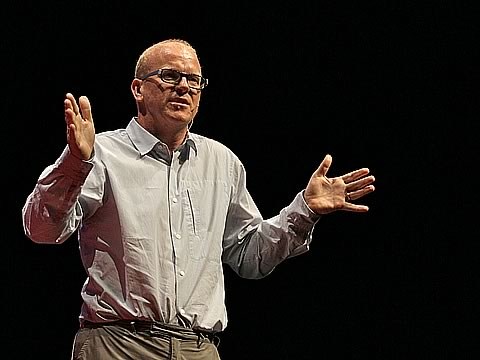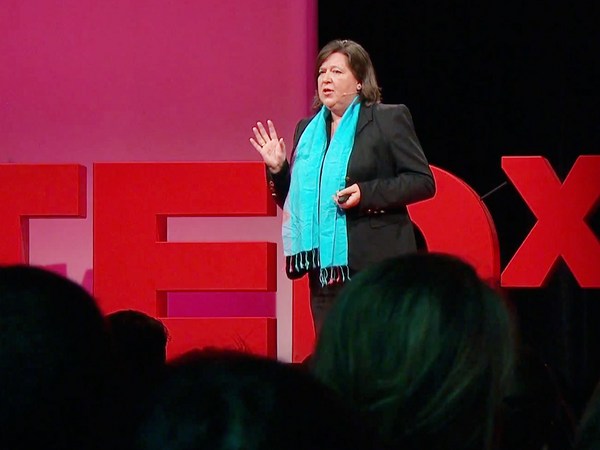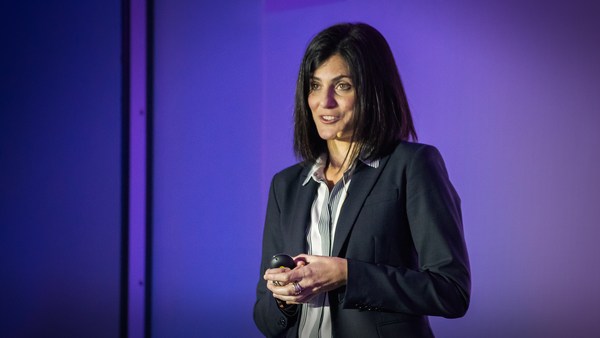Last January, my company, Fark.com, was sued along with Yahoo, MSN, Reddit, AOL, TechCrunch and others by a company called Gooseberry Natural Resources. Gooseberry owned a patent for the creation and distribution of news releases via email. (Laughter) Now it may seem kind of strange that such a thing can actually be patented, but it does happen all the time.
Take something already being done and patent it for an emerging technology -- like phone calls on the internet or video listings for TV shows or radio but for cellphones, and so on. The problem with these patents is that the mechanisms are obscure and the patent system is dysfunctional, and as a result, most of these lawsuits end in settlements. And because these settlements are under a non-disclosure agreement, no one knows what the terms were. And as a result, the patent troll can claim that they won the case.
In the case of Gooseberry Natural Resources, this patent on emailing news releases had sort of a fatal flaw as it pertained to myself, and that was that in the mainstream media world there is only one definition for news release, and it turns out that is press release -- as in P.R. Now my company, Fark, deals with news, ostensibly, and as a result we were not in violation of this patent. So case closed, right? Wrong.
One of the major problems with patent law is that, in the case that when you are sued by a patent troll, the burden of proof that you did not infringe on the patent is actually on the defendant, which means you have to prove that you do not infringe on the patent they're suing you on. And this can take quite a while. You need to know that the average patent troll defense costs two million dollars and takes 18 months when you win. That is your best case outcome when you get sued by a patent troll.
Now I had hoped to team up with some of these larger companies in order to defend against this lawsuit, but one-by-one they settled out of the case, even though -- and this is important -- none of these companies infringed on this patent -- not a one of them. And they started settling out. The reason they settled out is because it's cheaper to settle than to fight the lawsuit -- clearly, two million dollars cheaper in some cases, and much worse if you actually lose. It would also constitute a massive distraction for management of a company, especially a small eight-man shop like my company.
Six months into the lawsuit, we finally reached the discovery phase. And in discovery phase, we asked the patent troll to please provide screenshots of Fark where the infringement of their patent was actually occurring. Now perhaps it's because no such screenshots actually existed, but suddenly Gooseberry wanted to settle. Their attorney: "Ah, yes. My company's having a reorganization on our end." Never mind the fact that the address led to a strip mall somewhere in Northern L.A. with no employees. "And we'd like to go ahead and close this out. So would you mind giving us your best and final offer?" My response: "How about nothing?!" (Applause) We didn't have high hopes for that outcome. (Laughter) But they settled. No counter offer.
Now, as mentioned before, one of the reasons I can talk to you about this is because there's no non-disclosure agreement on this case. Now how did that happen? Well during the settlement process, when we received our copy, I struck it. My attorney said, "Nah, no chance of that working." It came back signed. Now why? You can call them. They're not under NDA either.
Now what did I learn from this case? Well, three things. First of all, if you can, don't fight the patent, fight the infringement. Patents are very difficult to overturn. Infringement is a lot easier to disprove. Secondly, make it clear from the beginning that either you have no money at all or that you would rather spend money with your attorney fighting the troll than actually giving them the money. Now the reason this works is because patent trolls are paid a percentage of what they're able to recover in settlements. If it becomes clear to them that they cannot recover any money, they become less interested in pursuing the case.
Finally, make sure that you can tell them that you will make this process as annoying and as painful and as difficult as possible for them. Now this is a tactic that patent trolls are supposed to use on people to get their way. It turns out, because they're paid on contingency, it works really, really well in reverse. Don't forget that.
So what does all this mean? Well to sum up, it boils down to one thing: Don't negotiate with terrorists. (Applause) Patent trolls have done more damage to the United States economy than any domestic or foreign terrorist organization in history every year. And what do they do with that money? They plow it right back into filing more troll lawsuits.
Now this is the point in the Talk where I'm supposed to come up with some kind of a solution for the patent system. And the problem with that is that there are two very large industry groups that have different outcomes in mind for the patent system. The health care industry would like stronger protections for inventors. The hi-tech industry would like stronger protections for producers. And these goals aren't necessarily diametrically opposed, but they are at odds. And as a result, patent trolls can kind of live in the space in between.
So unfortunately I'm not smart enough to have a solution for the patent troll problem. However, I did have this idea, and it was kind of good. And I thought, "I should patent this." (Laughter) Behold, patent infringement via mobile device -- defined as a computer which is not stationary. My solution: award me this patent and I will troll them out of existence.
Thank you.
(Applause)





